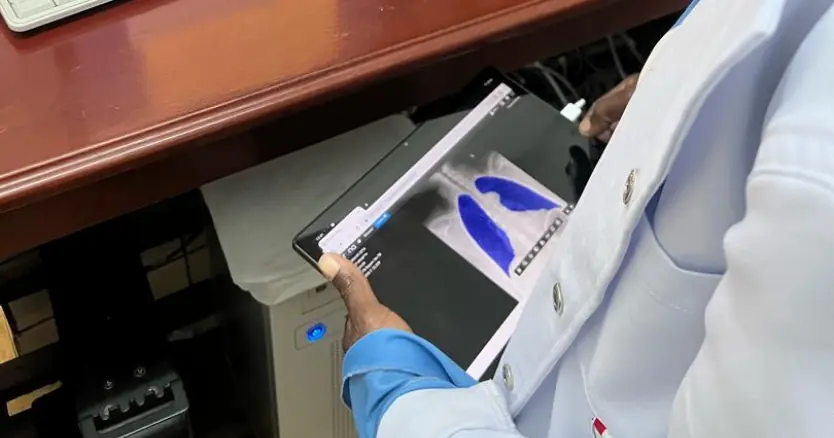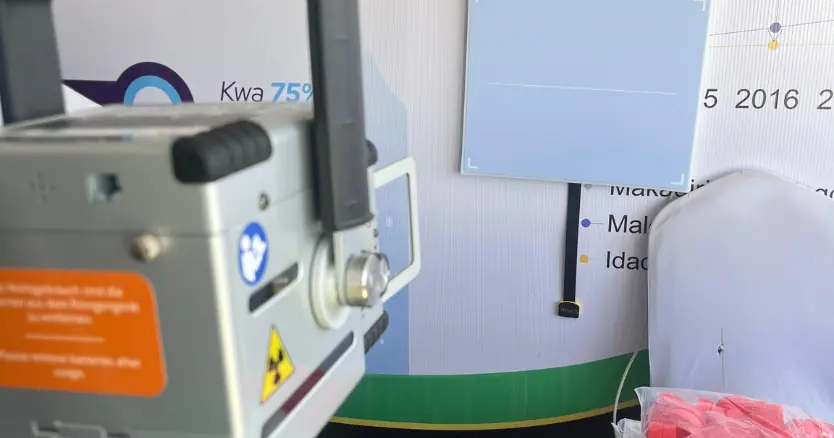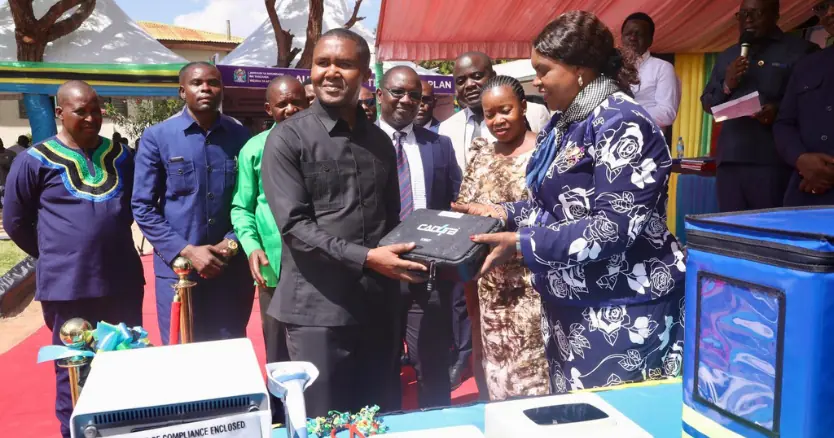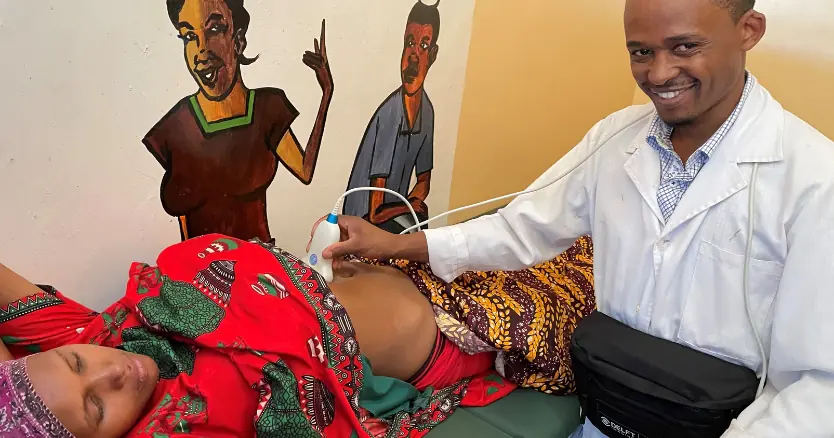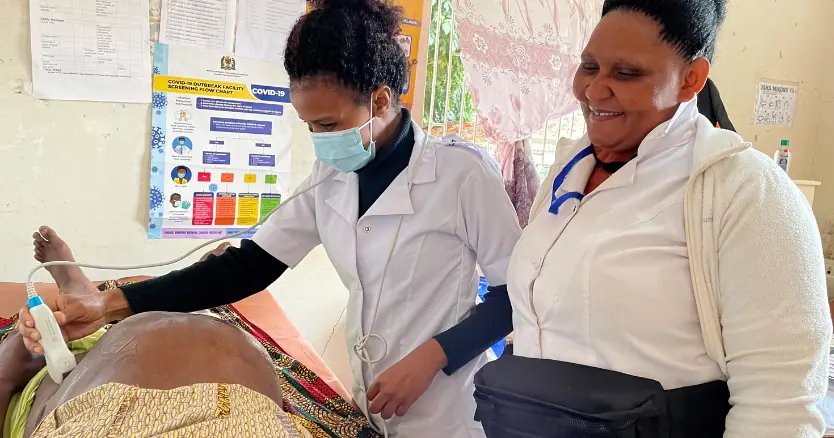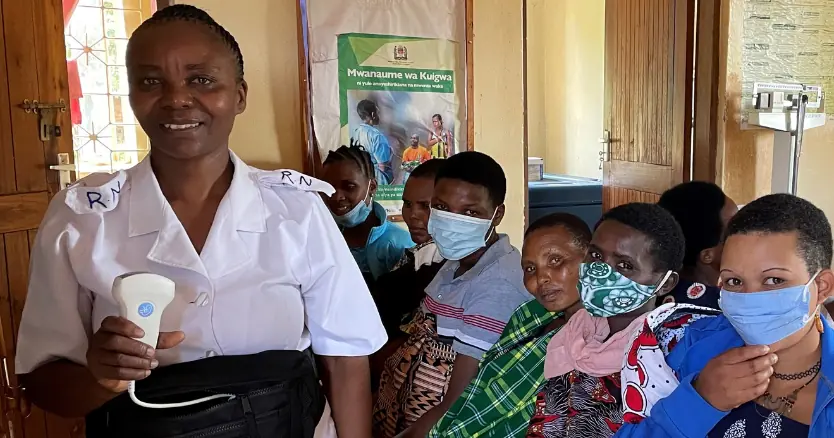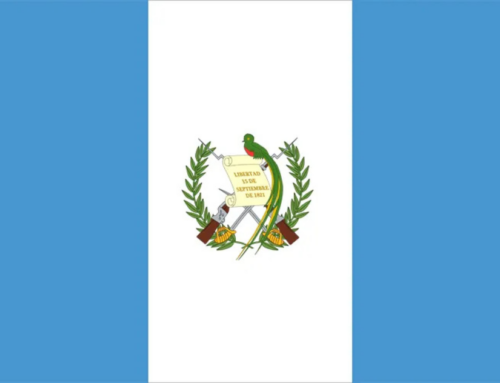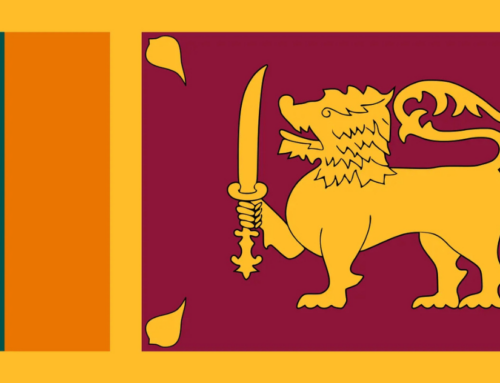Our projects in lung health
The total population of the United Republic of Tanzania was estimated to be approximately 60 million in 2020. That year, there were an estimated 133,000 people who developed TB. Among them, 22,000 were children. Moreover, there were 48,209 missing people with TB, of which 8,410 were children.
In 2010, Delft Imaging already provided an Odelca DR X-ray system to support screening in Tanzania.
In 2020, we partnered with different organisations within Tanzania to support research on the utilisation of CAD4TB. This AI software supports the automated detection of TB-related abnormalities on chest X-rays.
In 2021, CAD4TB was further expanded with 4 CAD4TB solutions to support the National Tuberculosis Program of Tanzania in the country’s screening and triage of TB.
Shortly after, in 2022, Delft Imaging delivered another 17 CAD4TB solutions to Tanzania to support the National TB Program. The CAD4TB solutions were installed in different clinics and hospitals across the country. The project was delivered with the necessary installation and training services in collaboration with the local in-country partner of Delft Imaging.
In early 2023, Delft Imaging delivered a Delft Ultra, an ultra-portable X-ray system to Tanzania, with the CAD4TB software and relevant training and installation services.
In 2024, we deployed a Mobile Clinic with EasyDR and CAD4TB inside to the country. Later in the same year, ten Delft Light with CAD4TB were deployed.
Our projects in maternal health
In Tanzania, the maternal mortality ratio stood at 276 deaths per 100,000 live births in 2023, reflecting progress from a high of 980 in 2000. The 2022 Demographic and Health Survey data reports a facility-level maternal mortality ratio of 104 per 100,000 live births, indicating better outcomes during institutional deliveries. Despite these improvements, disparities persist between community and facility-level care, underscoring the need for accessible screening tools and improved access to antenatal and obstetric care in remote areas.
Since 2022, BabyChecker has been implemented in Tanzania to support antenatal screening efforts. Initial deployments focused on collecting field-level data and user feedback on its integration within outreach and facility-based antenatal care programs.
Deployments were carried out with partners, including Misingi and the Karatu District.
Making a difference
In 2014, a study was published on using CAD4TB in Tanzania. CAD4TB was evaluated on chest radiographs of patients with symptoms suggestive of pulmonary tuberculosis enrolled in two cohort studies in Tanzania. CAD4TB was significantly more accurate for discriminating smear-positive cases against non-TB patients than for smear-negative cases. It also showed that CAD4TB significantly outperformed the clinical officer but did not reach the accuracy of the expert reader. Note that the study used a substantially older version of CAD4TB than currently available.
In 2015, another study was published using CAD4TB, looking at CAD4TB as a tool to help screen for pulmonary tuberculosis in a Tanzanian prison. The study showed that CAD4TB reliably evaluates chest X-rays from a mostly asymptomatic prison population, with a diagnostic performance inferior to that of expert readers but comparable to local readers. Note that the study used a significantly older version of CAD4TB than currently available.
A 2024 study on the use of CAD4TB in mobile clinics in Tanzania demonstrated the solution’s efficiency in quickly analysing cases compared to manual readings by radiologists. This efficiency is particularly beneficial in resource-limited settings, as it reduces reliance on the costly GeneXpert test. Additionally, the study recommended a specific threshold score for CAD4TB tailored to Tanzania’s needs.

